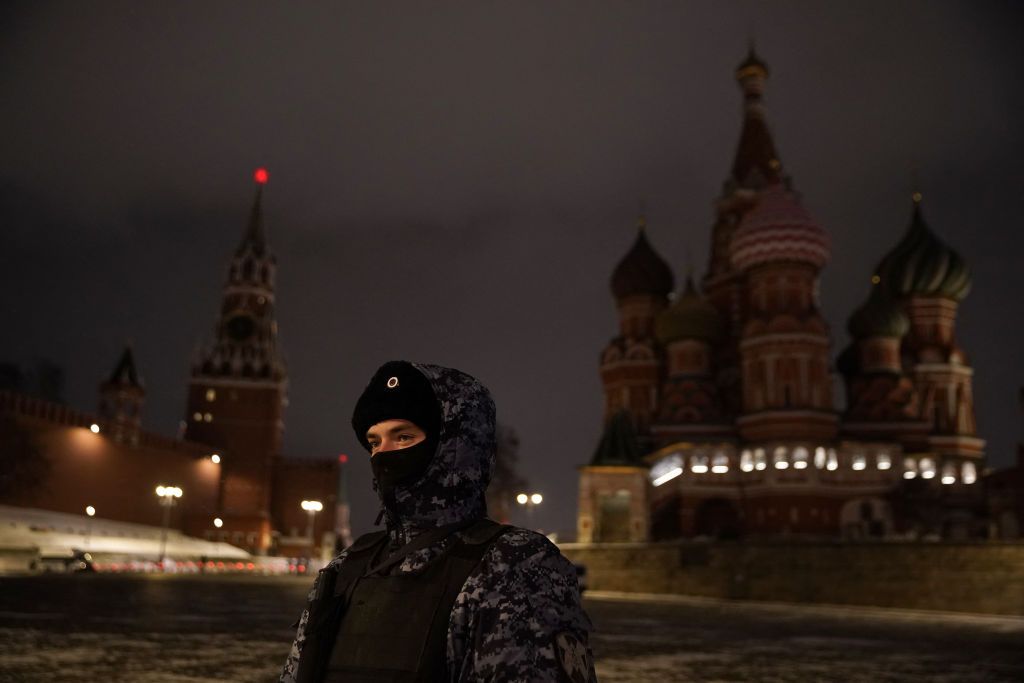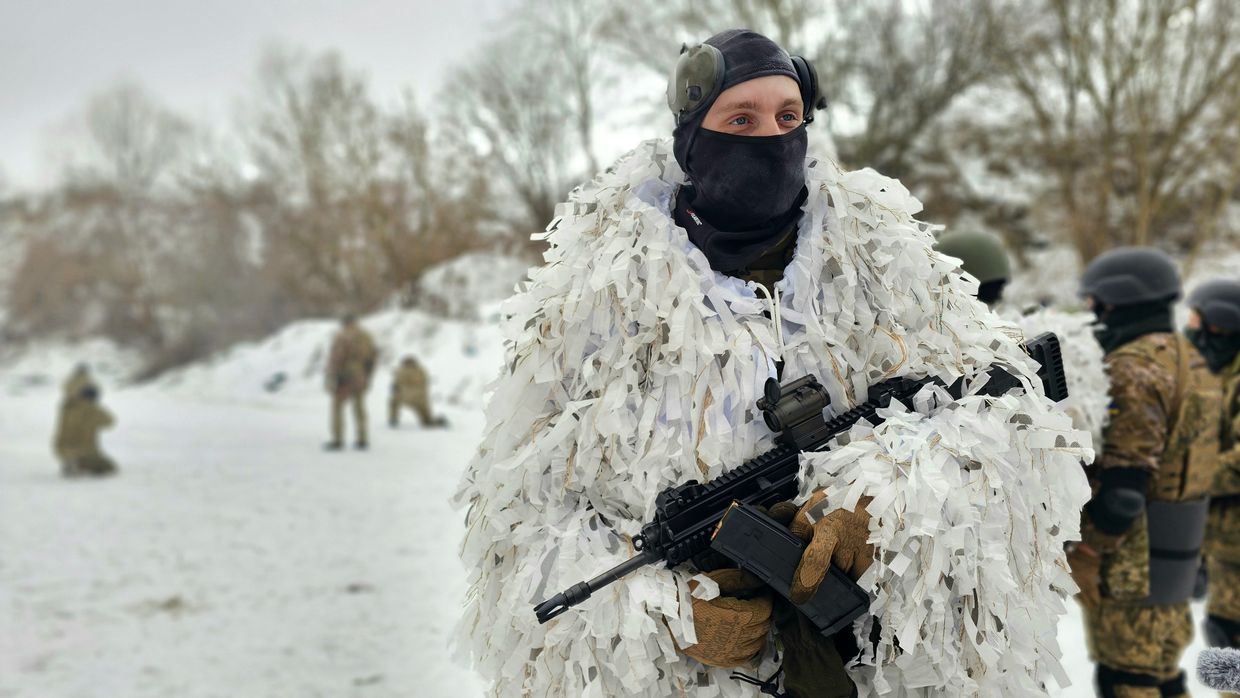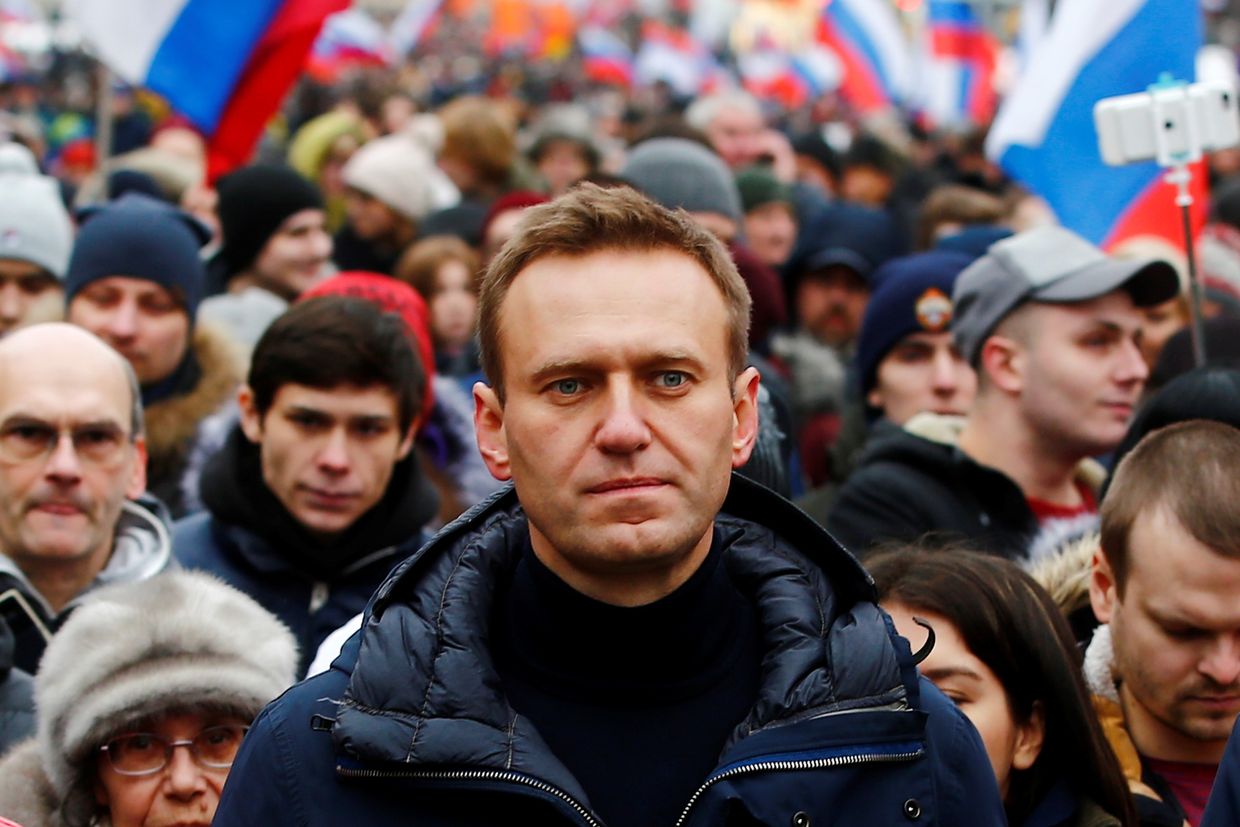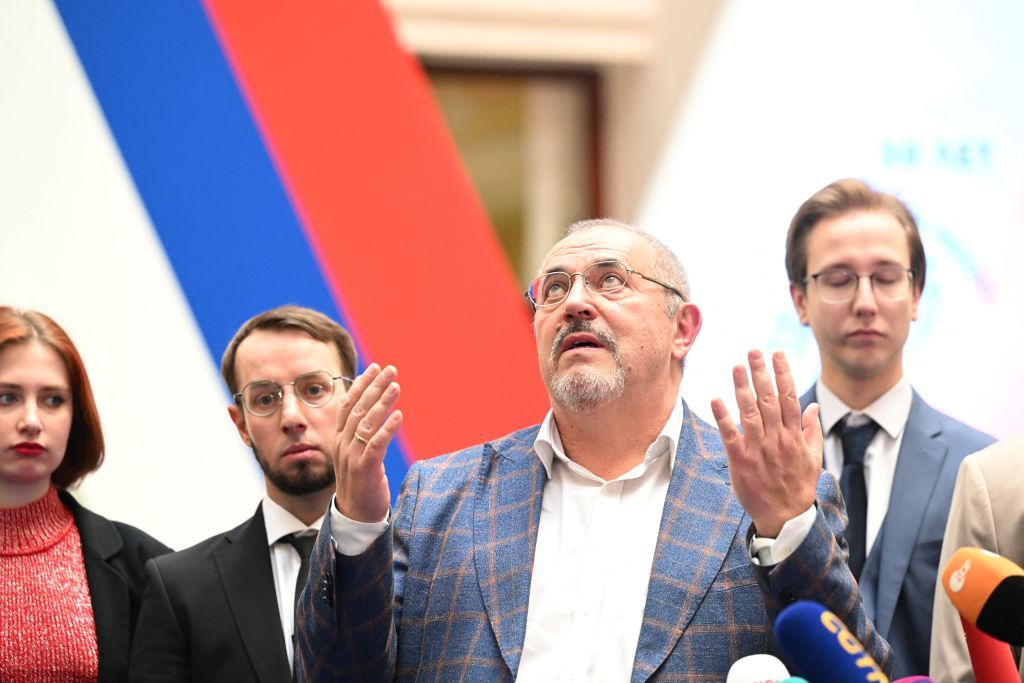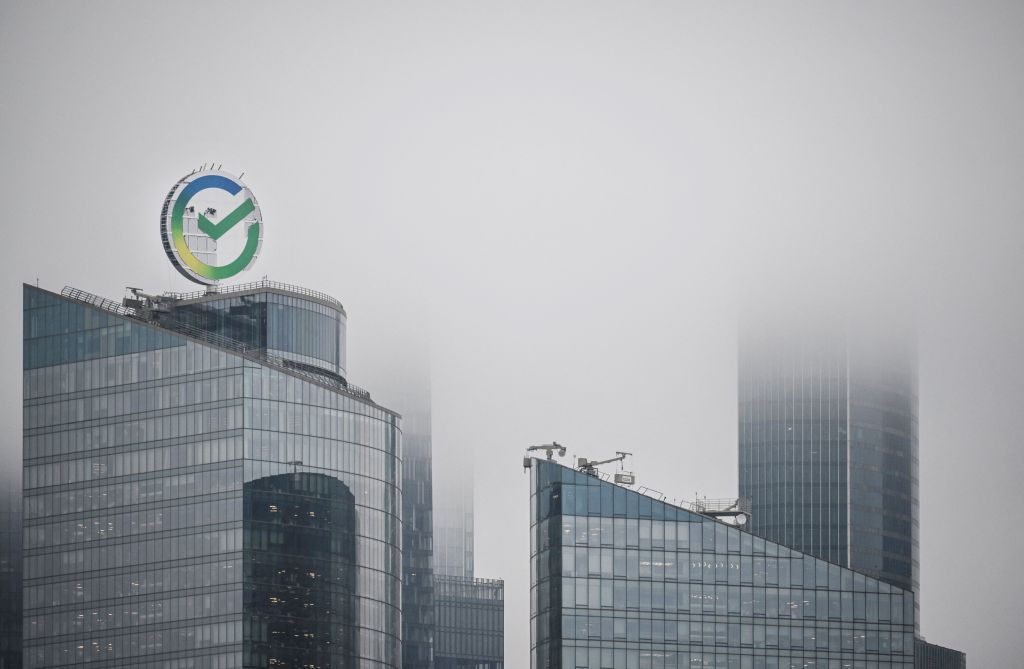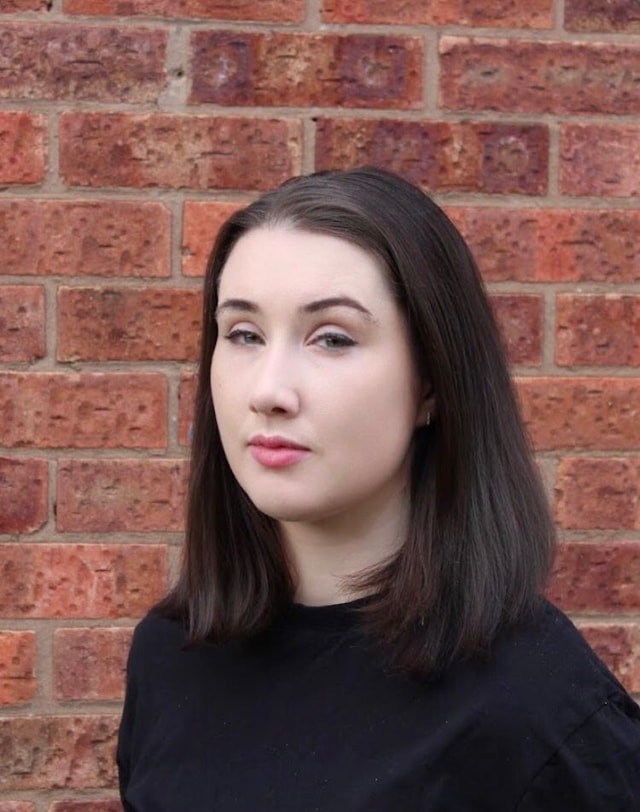Whether afraid or indifferent, regular Russians enable autocracy

People wave Russian flags as President Vladimir Putin walks on the stage to give a speech during a patriotic concert dedicated to the upcoming Defender of the Fatherland Day at the Luzhniki stadium in Moscow on Feb. 22, 2023. (Photo by Natalia Kolesnikova/AFP via Getty Images)
For global audiences watching Moscow’s tightly-choreographed “election-style event” this weekend, Russia appears to be a country transformed – a militarized society where dissent is simply no longer tolerated.
But the truth is that in the two years since the Kremlin launched its full-scale invasion of Ukraine, for the majority, life in Russia has continued largely as normal.
Despite Western sanctions, cafes are full and shopping malls are open. On Saturday nights, there are cocktails, 90s disco pop-ups, and immersive VR art shows. Now that the shock of the invasion has dissipated and the threat of mass mobilization has abated, most Russians — even those initially horrified by the war — are happy to continue living very ordinary lives.
These privileges aren’t for everyone.
Russians caught protesting against the regime are detained by police and handed harsh prison terms. Thousands of others have been pushed into exile.
But for the country’s silent majority — the millions of people who don’t actively support the war, but rather keep their heads down, turn a blind eye, and insist they just “don’t do politics” — life in March 2024 looks much like it did in March 2021.
For those who want to see President Vladimir Putin ousted from power, that is a significant problem. With nothing to shake the status quo, there is little pushing Russians to question their leaders’ actions.
Regardless of whether politically apathetic Russians have internalized government messages, or are simply afraid to voice their discontent, their lack of action acts as a bulwark for Russian autocracy, says Dr. Volha Kananovich, who authored a series of articles on mass media and social contracts in Russia and her native Belarus.

For street protests to turn into revolutions, they need overwhelming support and action from across the social spectrum. “Regardless of their intentions, the silent majority ends up maintaining the status quo and contributing to the regime’s consolidation,” Dr. Kananovich says.
In many ways, Russia’s silent majority is typical of authoritarian regimes across the world.
Most people remain largely disinterested in the machinations of power, preferring to focus on the immediate well-being of their own families and communities. Its very nature also means that it is difficult to gauge or meaningfully measure in size.
It is just one reason why the Kremlin is so keen to hold this month’s presidential elections — even if the results are all but decided, says Dr Licia Cianetti, deputy director of the University of Birmingham’s Center for Elections, Democracy, Accountability & Representation (CEDAR).
Measuring turnout is an important way to count who can be relied upon — or coerced — into making a mild show of support for the regime.
“Most people aren’t heroes,” says Dr. Cianetti. “A lot of people might have their grumblings, but they either just adapt to what's going on and create a worldview that doesn't make their country out as a pariah state, or they simply just try and forget.”

Singular focus
Russia’s silent majority is relatively diverse.
Although it reflects key aspects of President Putin’s core electoral base — those living in rural areas, people with lower levels of educational attainment, people who are older or work in the state sector — in other ways, it transcends political divides. Support — or at least acceptance — of the regime encompasses voters across class and ethnic divides, as well as people with a large range of views on issues such as state market controls or immigration.
But there is one overarching theme that appeals to Russia’s silent majority above all, says Dr. Timothy M. Frye, professor of Post-Soviet Foreign Policy at Columbia University — the long-idolized ideals of stability and economic strength.
“For most Russians, being a great power is less important than more mundane issues, such as the performance of the economy, inflation, and the cost of housing,” says Frye. “Support for Putin seems to be more rooted in perceptions of stability at home and the strong economic performance from his first two terms in office.”
With public focus latched onto this single area, the fabric of Russian reality elsewhere can become substantially warped almost without complaint.
In the western border city of Belgorod, new concrete bus shelters — designed to double as air raid shelters — have been installed in the streets. Air raid alerts close to the Ukrainian border, as well as temporary airport shutdowns, are all now regular occurrences. None of this, however, appears to have triggered any substantial soul-searching among the Russian masses.

Conversely, it also means that dissatisfaction and unrest can erupt from seemingly insignificant issues.
In December 2023, Russian consumers were left dealing with the skyrocketing cost of eggs. A bubbling tempest of labor shortages, a lack of equipment, high energy costs, and the falling ruble saw prices rise by 42 percent within the first 11 months of 2023, according to state statistics.
The issue prompted public angst — enough so for Putin to address it in his highly-controlled annual question-and-answer session with the public. He apologized for the government’s “failure” on the topic and committed to scrap egg import duties.
“I think a sharp economic downturn or decline in living standards would be the most likely spark (for mass unrest),” says Dr. Frye.
“Research has shown that Russians who believe the economy as a whole is not doing well, or whose personal financial fortunes have declined, exhibit distinctly lower levels of support for Putin. This group is also much less likely to support the war.”
Saving the status quo
Unsurprisingly, the Kremlin is working hard to placate Russia’s apathetic masses and maintain the status quo.
This has involved pumping large amounts of money into the economy in order to keep it moving under a barrage of sanctions. But it has also seen Moscow take steps to ensure the silent majority remains isolated and despairing.
Crushing dissent by using police violence or hefty prison sentences sends a clear message to those who may be tempted to make their unhappiness known, says Dr. Kananovich. But the Kremlin has also been careful to control the public sphere, making it hard for Russians to tell what others may really be thinking.
“Evidence shows that we are very bad at correctly perceiving what others think, so we look for cues of public opinion in our environment. If you take away these cues, people are less likely to speak up because they would think that they are in the minority,” she says.
For those who hope to see more Russians speak out against the Kremlin, breaking this sense of isolation is likely to be key.
But convincing people that they are not alone is no small task — particularly in Russia’s vast rural regions, where it is harder to tap into existing networks, or to hide from the grasp of Russia’s security services.
Attempts to reach out to others can be misinterpreted, or even backfire.
As part of her research, Dr. Kananovich looked at anti-government memes poking fun at poor Russian living standards. Yet rather than mobilizing rural netizens who bore the brunt of such conditions, the memes exacerbated a sense of hostility toward those perceived as rich urban liberals, looking down on their provincial counterparts.
“Memes can be spaces for people to build communities around. But sometimes they can become these inside jokes that map nicely on divides cultivated by the Russian government,” says Kananovich.
“When you see memes portraying regime supporters as living in impoverished conditions, there is no empathy there. They are almost shaming people's lives. There’s a missed opportunity to say, look, the government's inability to fulfill its social contract with you, and thousands of others, is one of the grievances that we together could bring to the Russian government as a failed state.”
Any strategy will take time and patience.
Both Frye and Cianetti stress that autocratic regimes are more likely to end by dissent among the elite than by bottom-up pressure.
Yet, the very nature of mass dissent is that it’s hard to predict.
Russia’s apathetic masses may seem like a monolith — but that could very quickly change. Just as it’s hard for researchers to gauge true thoughts of Russia’s silent majority, it’s also hard for the Kremlin.
“Autocratic regimes control their citizens. That control is a double-edged sword. It makes the regime predictable, but it also means it has very little information on what people actually think,” says Dr. Cianetti.
“If Putin's regime fell tomorrow, everybody would say that it was entirely predictable. If it lasts another ten years, people would say the same thing,” she says.
“But I don't think it's possible to know beforehand when that point will arrive.”

